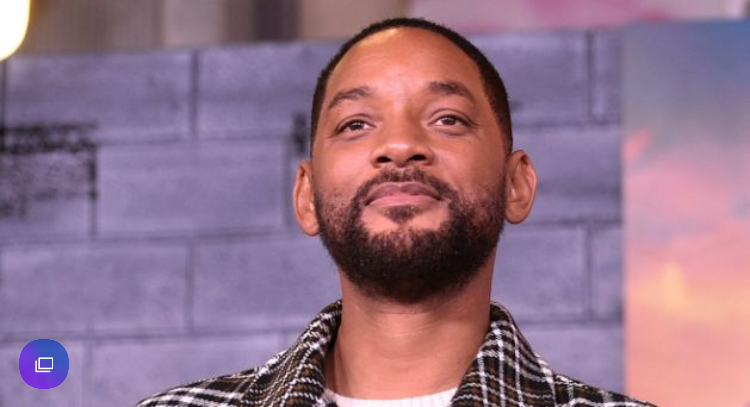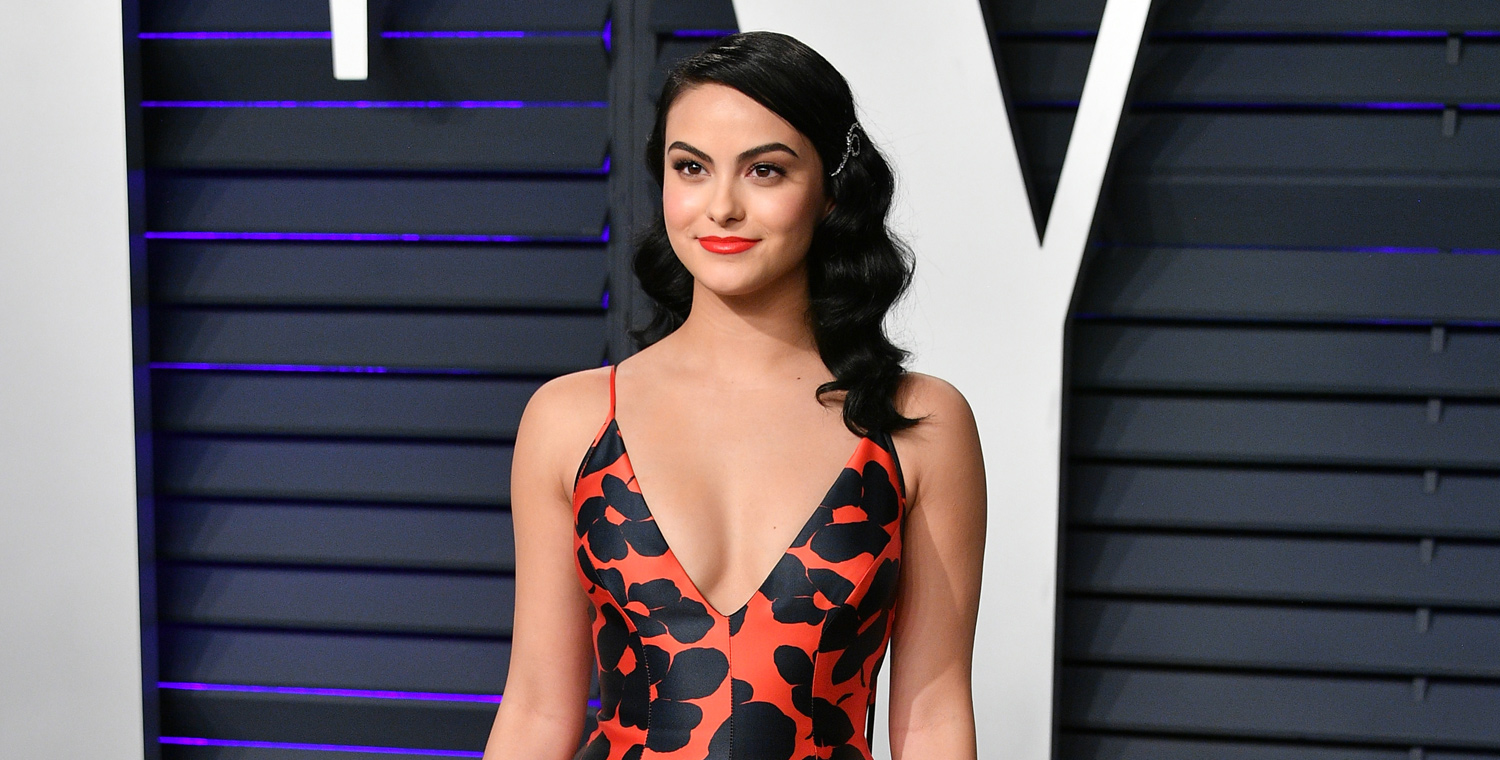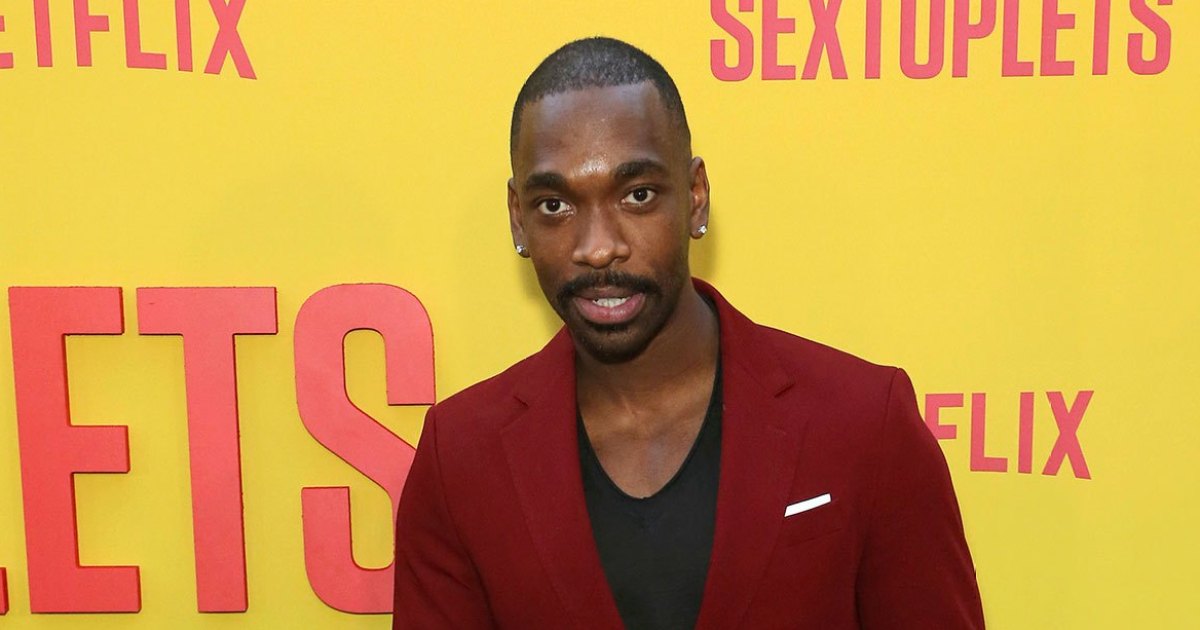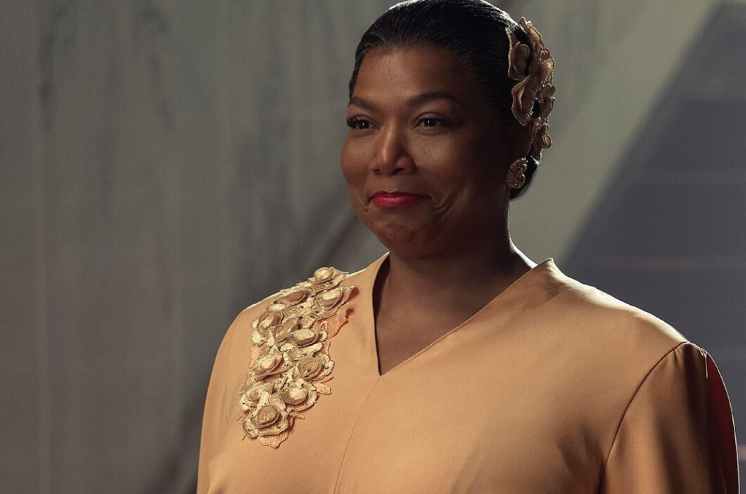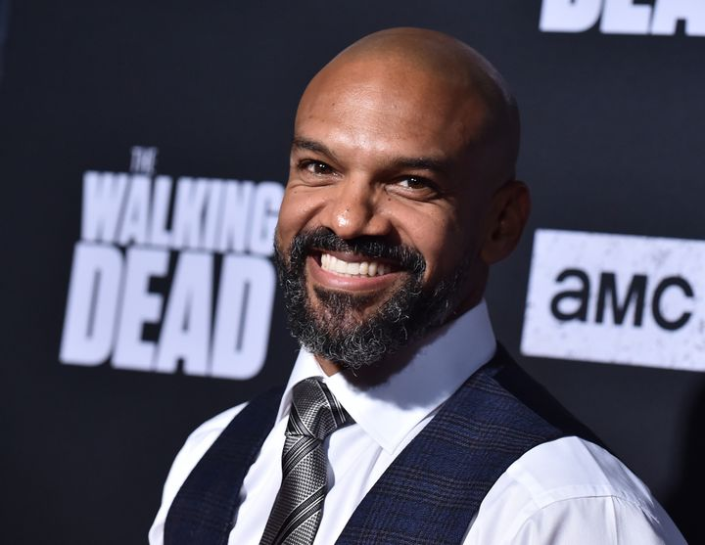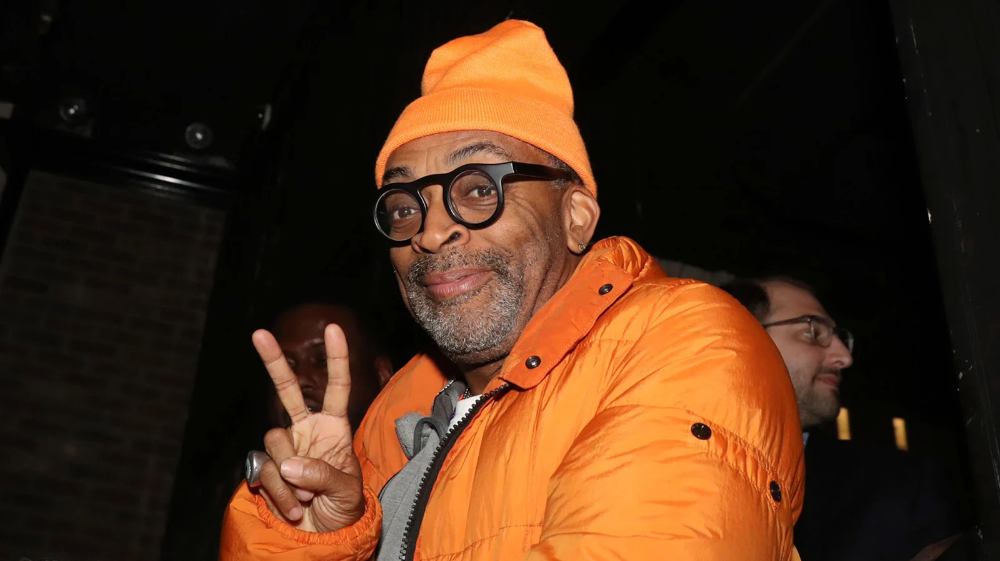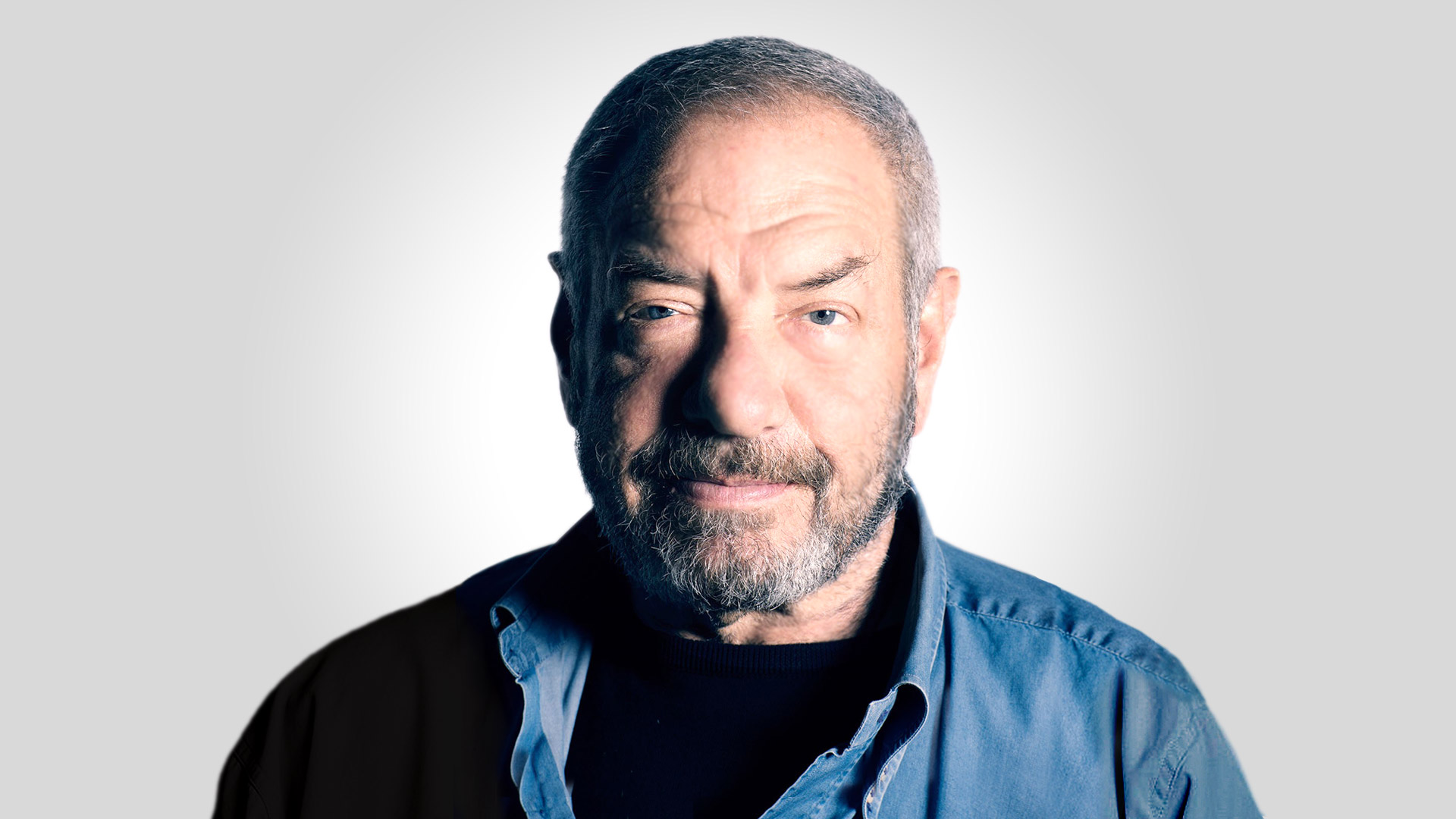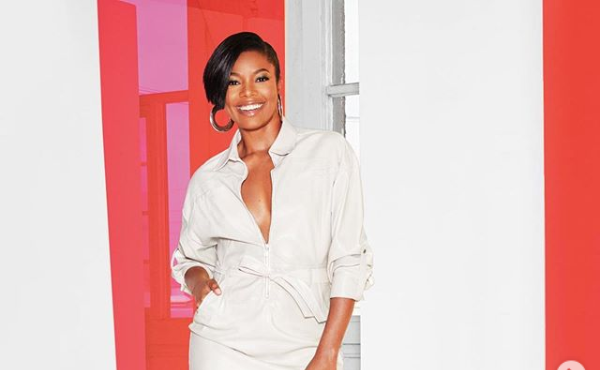Will Smith & Warner Bros Grand-Slammed With Suit Over ‘King Richard’ Film Based On Serena & Venus Williams’ Father’s Life
Will Smith’s movie about the life of Serena Williams and Venus Williams’ fathere may still be shut down from concerns over the coronavirus pandemic, but King Richard certainly is being served in the courts thanks to a potentially multimillion-dollar breach of contract lawsuit.
“This case presents an unfortunate and tawdry situation: the cold and calculating misappropriation and interference with Plaintiffs’ intellectual property,” says the seven-claim complaint from TW3 Entertainment and Power Move Multi Media filed in Los Angeles Superior Court on Tuesday against Smith’s loan-out company and Warner Bros, among others, over the Reinaldo Marcus Green-directed film. “Plaintiffs’ good faith and contractually protected efforts to bring an amazing story into visual art form were met with Defendants’ greed and disregard for Plaintiff’s existing rights.”
Along with the AT&T-owned studio, Bad Boys star Smith’s Overbrook Entertainment, Richard Williams himself, his son and sometimes business partner Chavoita Lesane, and production company Star Thrower Entertainment and its key executives are also named as defendants in the lawsuit.
The plaintiffs claim in the suit that they bought the rights to Williams’ book for a mere $10,000 three years ago from Lesane, who was involved in an initial draft of a script for the project too. The complaint details that the elder Williams allegedly gave limited power of attorney to Lesane, for “purposes of dealing with film and media rights for his book.” It was in that vein that TW3 and PMMM supposedly picked up rights to the memoir of the father of two of the greatest tennis players of all time for what could be considered nickels on the dollar.
Putting more of a backspin on the situation now, not only do the Neville Johnson-represented TW3 and PMMM want wide-ranging unspecified damages from the big-budget King Richard movie, their court action also seeks “an injunction requiring all profits for any project using the Richard Williams Rights to be placed in trust for Plaintiffs’ benefit.”
“Plaintiffs and Warner Bros. entered into an implied-in-fact contract, based on their
conduct as alleged above, whereby Plaintiffs disclosed ideas and materials regarding the Richard Williams Rights to Defendants for sale, i.e., in consideration for Defendant Warner Bros’ obligation to pay and credit Plaintiffs if Defendant Warner Bros. or any of its affiliated entities used any of those ideas or materials in any motion picture, television program merchandising program, or otherwise,” the jury trial seeking complaint proclaims (read it here).
In the past couple of years, the elder Williams supposedly sold rights to his life to the King Richard filmmakers for $1 million, thereby kneecapping the earlier TW3 and PMMM agreements.
With a shifting cast of characters, the lawsuit is full of dense dealmaking, high-stakes pitch sessions and sit-downs with WB Entertainment EVP and CFO Kim Williams (no relation), plus a mention of a March 2019 Deadline scoop on Star Thrower shopping a King Richard script by Zach Baylin, and the CAA-repped Smith getting onboard. Ultimately, TW3 and PMMM’s complaint boils down to their assertion that they were working on the Richard Williams story before Warner Bros and Overbrook made a deal for a vehicle with Smith in the lead role.
“Defendant Warner Bros. used Plaintiffs’ ideas and materials in King Richard, and such ideas and materials provide substantial value to Defendant,” the complaint goes on to assert amidst claims of a May 2017 agreement for rights to the elder Williams’s 2014 memoir Black and White: The Way I See It and “Plaintiffs’ pre-existing property rights.”
Not only is the thrust that Star Thrower and WB knew TW3 and PMMM owned the rights to Williams’ book and life, but that they even saw the small company’s efforts directly. “However, Defendant has not compensated or credited Plaintiffs for the use of such ideas and materials. Accordingly, Defendant has breached, and continues to breach, its implied-in-fact contract with Plaintiffs,” the suit states in some of the bluntest language to be found in the entire complaint.
“Plaintiffs reasonably expected to be compensated for such use of any of their ideas or materials, and Defendant Warner Bros. voluntarily accepted Plaintiffs’ offer and disclosures, knowing the conditions on which they were made, i.e., that any use of any of Plaintiff’s ideas or materials in any motion picture, television program, merchandising program, or otherwise, whether by Defendant Warner Bros. or any of its affiliates, carried with an obligation to, inter alin, compensate and credit Plaintiffs for such use,” the filing also says.
Warner Bros declined to comment and Overbrook did not responded to request for comment from Deadline on the matter. With that in mind, as King Richard optimistically looks to a 2021 release date, you can be damn sure the heavy-hitter defendants will be launching a response to the plaintiffs, with the near dominance of Serena’s running forehand, in court in time.
Article via YahooNews
Camila Mendes: ‘Riverdale’ sexual assault claims damage the #MeToo movement
Camila Mendes is defending her recently-accused-of-sexual-assault “Riverdale” co-stars.
“Someone saying to me that somebody would do such a thing to prove a point? It seems so trivial,” Mendes said on SiriusXM’s “The Jess Cagle Show” Tuesday.
“You really went to that extent? To damage not only the integrity of the #MeToo movement, but to potentially damage the careers of these people and their lives? To do that in order to make a point about how easily people believe things, it’s so backwards to me.”
Mendes also defended her colleagues Monday via Instagram.
“It’s incredibly destructive to falsely accuse people of sexual assault,” Mendes shared. “Whatever point this person was trying to make about how quickly people believe what they read, it was not worth damaging the integrity of the me too movement.”
The CW star continued, “It’s sickening and doesn’t prove anything except that there are twisted people in this world who have no concern for the consequences of their harmful actions.”
“Riverdale” co-stars Lili Reinhart, Cole Sprouse and KJ Apa have all faced sexual assault allegations from anonymous people on social media. Sunday, a woman named Victoria claimed on Twitter that Sprouse “became aggressive” in his room after a party at his NYU dorm. Another woman came forward Monday to accuse Reinhart of groping her while taking a fan photo together.
“It invalidates the men and women who are brave enough to come forward with the truth,” Reinhart, 23, tweeted in response to the accusations. “This kind of lie can ruin lives and careers — and I can call it a lie because the person who made the allegations already admitted that the stories were fabricated.”
The “Hustlers” actress also retweeted one of Sprouse’s tweets stating the cast and their teams were investigating the source of the false claims, adding, “I have always taken sexual assault allegations seriously. But it was proven that this account was created specifically to create false stories about me and my cast. I can’t think of something more twisted than lying about sexual assault.”
Article via PageSix
T.I.’s Daughter Deyjah Harris Reveals State of Their Relationship After His Hymen Comments
T.I. made headlines for all the wrong reasons when he proudly proclaimed that he goes with his teenage daughter to the gynecologist “to check her hymen.”
The controversial reveal made in an interview last November was just part of a series of statements many saw as overbearing behavior at best and wildly inappropriate and boundary-crossing at worst.
Now, 18-year-old Deyjah Harris is saying her piece, opening up about the embarrassment of having such an intimate topic of discussion — no matter what’s going on — happening on the public stage. Even worse, it all happened while she and the family were supposed to be enjoying a vacation.
In the latest episode of “T.I. & Tiny: Friends and Family Hustle,” Dayjah said she only found out about T.I.’s comments when she was tagged in a social media post about them, meaning her father didn’t even tell her what he’d said after the interview.
“I’m scrolling on Twitter, and I see that I’ve been tagged in a post,” she said. “The only word that I saw was ‘gynecologist’ and I didn’t even need to read the whole title ’cause I just knew… my heart sank.”
T.I. came under fire for the interview, where he went into graphic detail about his supposed conversation with her gynecologist when she was just 16 years old. After the backlash, though, the rapper backtracked slightly during an appearance on “Red Table Talk,” saying he exaggerated “from a place of truth.”
“I think that a lot people kind of like took it extremely literal,” he said. “My intentions I think have been terribly misconstrued and misconceived.”
The teen described her household situation as “completely uncomfortable.” She went on to add, “We’re all together in this house, so I have to see my dad and be around him. And we’re in a foreign country, so it’s not like I can leave and get away.”
Now, she was forced to unravel her complex feelings about her father talking about her in such an intimate — some would argue inappropriate — manner in an interview with extended family on a vacation. So not an ideal situation for anyone, much less a teenager.
Saying she was “very shocked, hurt, angry, embarrassed,” Deyjah said she’s also had to push back her feelings about her father’s overbearing invasiveness for year.
“I typically don’t handle problematic issues head on,” she admitted. “I tend to just hope issues go away. I know it’s not healthy, but I do it because it’s easier.
While Deyjah did confirm that T.I. has been going with her to verify her virginity “since probably 14 or 15,” she did not say what may or may not have been exaggerated or embellished, as T.I. suggested. It’s also possible she didn’t fully know what he said still.
“I do think my dad treats me differently than the boys when it comes to the subject of sex and supervision,” Deyjah said, saying that she definitely doesn’t feel comfortable talking to him about anything in that area.
In fact, she feels that even if she tried, she would never be able to get through to him because “he always plays victim.” Tragically, she said his behavior has actually impacted their relationship to the point she feels a little traumatized.
In the wake of Kobe Bryant’s death, T.I. did take toInstagramwith an apology for both of his daughters, writing, “Please forgive me for any and all imperfections that cause misunderstandings between us.” You can check out his full statement below.
Article via TooFab
Deyjah Harris’ mom Niko slams T.I.’s ‘Red Table Talk’ appearance #fullbreakdown
Jay Pharoah says “sorry” from LAPD cops who forcibly detained him with guns drawn is “not enough”
Former “Saturday Night Live” comedian Jay Pharoah said he was scared and confused when the Los Angeles police stopped him in April. Earlier this week, Pharoah shared a video of the encounter on Instagram.
Surveillance video shows LAPD officers running toward him with guns drawn. They ordered him to the ground and handcuffed him. Pharoah said one officer placed a knee on his neck.
The police reportedly told him he matched the description of a suspect. Pharoah, who was released a short time later, told “CBS This Morning” co-host Gayle King he was a victim of racism.
In a statement to CBS News, the LAPD said, “We are aware of the video and it’s under investigation.”
Pharoah: I’m walking across the street, and then all of a sudden I hear, “Get on the ground.” … The cop from the left of me, he’s just, he’s coming, he’s got his gun out. I don’t know what’s happening.
King: But you didn’t think they were talking to you at first, or did you?
Pharoah: I didn’t because Gayle, like I said, I don’t have any run-ins with the law. I’ve never even had a ticket. … I’ve never had guns pointed at me, Gayle. … I’ve never had handcuffs put on me.
King: So they tell you to get on the ground. Do you immediately comply?
Pharoah: They said lay on the ground and spread your arms out like an airplane. The officer comes. He gets on top of me, he puts his knee on me, he puts my hands, my arms are back here, he puts on the cuffs. … I’m shocked. I’m scared. I don’t know why I’m being detained. I’m just totally confused right now. … So they pull me up, telling me that I fit the description.
King: What was the description?
Pharoah: Description was a black man in gray sweatpants and a gray shirt.
King: Did you have on gray sweatpants and a gray T-shirt.
Pharoah: Oh yeah, I did. I did.
King: So what should they have done?
Pharoah: I think the right way to handle this situation would have been for the cops to calmly come up to me since they see I don’t have anything on me. … It should have been like, “Hey man, we’re having a problem right now. We ask you if you have your I.D. because there’s somebody who just ran, fled a scene from police officers and we’re looking for him.”
King: The officer kneeled. Where did he kneel on you?
Pharoah: The cop put his — he put his pressure, he put all of this, this is his — his knee, his leg, right here.
King: Is on your neck?
Pharoah: It was right here on the bottom of my neck.
King: This is before the George Floyd case, so in that moment, what were you thinking when he had his knee on your neck?
Pharoah: I just thought why? … Now, I do not have 8 minutes and 46 seconds of an officer being on top of me like that, obstructing my airway and choking me. I don’t have that. … Luckily, they pulled me up and I got out of it. But it’s like, why does it have to go to that extremity? … When I’m an innocent bystander. … We should never have to feel like our lives are in danger when we’re doing regular human activities. I don’t want to have to fear for my life when I’m going to Whole Foods and getting some chips and guac, or picking up a kombucha.
King: It’s the assumption that bothers you. It doesn’t seem like you were given the benefit of the doubt, does it?
Pharoah: That’s the thing, Gayle. Black people in America in general. Why do we have to feel like we’re guilty until proven innocent? Where the other side gets innocent until proven guilty? … I saw a video yesterday where there was a gentleman and the cop was trying to apprehend him. … The guy ran at him. The cop starts running. … He’s running. The suspect then gets in the car, backs out and almost hits the police officer.
King: Any shots fired?
Pharoah: No shots fired whatsoever.
King: When you said that you were scared, did you worry that you could lose your life?
Pharoah: Yes. When I see guns coming towards me, my natural instinct is, oh, snap. I could — I could die.
King: You said you were complying. Did you say, my name is?
Pharoah: I said, I don’t have my I.D. on me, but if you Google Jay Pharaoh, you will see that you’re making a serious mistake. A couple of minutes later, they came back and they said, “Oh, we got a call that you’re not the guy. Sorry, my bad.” “My bad” isn’t good enough.
King: Jay, did they say “my bad”? Did they say that?
Pharoah: They said, “I’m — oh, sorry, sorry.” That’s not enough. … There needs to be some practice with these policing, reforms. … I don’t want to see another 20 black people be martyrs for no reason.
King: Who was the first person you called after this happened to you?
Pharoah: I called my mom and I told her what happened. My dad was on the phone too and it just, you know, my mom started crying.
King: And that affects you too to see your family crying too.
Pharoah: It’s a terrible feeling that the aftermath of such a terrible situation can cause that much impact on people around you. … I hit up Steve Harvey when it happened. He said, “You got a ‘being black in America sandwich.'” And I said that’s exactly it. I’ve eaten it and I know how it tastes.
King: Being black in America sandwich. Yeah, and it don’t taste good.
Pharoah: You know what tastes good? Just being a beautiful black person.
King: Yes, that feels good, too.
Article via CBSNews
Queen Latifah criticizes ‘Gone with the Wind,’ notes Hattie McDaniel’s Oscar win wasn’t what people think
Queen Latifah said she supports HBO Max’s controversial decision to remove “Gone with the Wind” from its library due to racial sensitivity.
The 1939 Oscar-winning film set during the Civil War was removed from the platform due to concerns over its depiction of black people from that era amid heightened sensitivity to racial issues sparked by the death of George Floyd. Floyd died while in police custody on May 25 after an officer knelt on his neck for more than 8 minutes.
Many were quick to deride the decision, noting that “Gone with the Wind” gave actress Hattie McDaniel an Oscar for her role, making her the first black American to win the coveted award. Although the streaming service eventually reversed its decision, Latifah, who plays McDaniel on Ryan Murphy’s Netflix series “Hollywood,” noted that it might be time to “let ‘Gone with the Wind’ be gone with the wind.”
In an interview with the Associated Press, Latifah noted that McDaniel’s Oscar win was far from the massive win for film diversity that it’s being touted as.
“They didn’t even let her in the theater until right before she got that award. Someone came outside and brought her into the auditorium. She wasn’t even allowed to sit in there. And then she had to read a speech that was written by a studio. You know that’s not what the hell she wanted to say,” The 50-year-old actress said.
She added: “Then after that, all she could do was play the same kinds of roles … So the opportunities at that time and the way that those in power in that business were relegating us and marginalizing us and not allowing us to grow and thrive after that was just terrible. And a lot of that is still around today.”
When the film returns to the streaming service, it will include an introduction from Jacqueline Stewart, a Turner Classic Movies host and professor in the Department of Cinema and Media Studies at the University of Chicago.
Elsewhere in the interview, Latifah was asked her thoughts on the ongoing protests sparked by Floyd’s death. The actress and musician noted that the movement is a long time coming while highlighting how this current time feels different than previous generations of protests.
“This is like nothing I’ve ever seen in my life. And it’s also the fact that it’s happening worldwide. It’s time, you know? It’s time,”” she explained. “What an opportunity we have right now. I can only liken it to what it was like for me as a kid, as a teenager — young 20s, early ’90s when there was apartheid in South Africa, and we weren’t with that. And rappers, we stood up and used our voices, and everybody used their voices.”
Article via FoxNews
‘The Walking Dead’ Star Khary Payton Introduces His Transgender Son To The World
The actor described 11-year-old Karter as “one of the most happy, well-adjusted individuals I’ve ever known” alongside an adorable photo on social media.
Khary Payton is beloved by fans around the world as Ezekiel on “The Walking Dead,” but his off-screen role as a doting dad is earning him the most praise this week.
The Georgia-born actor introduced the world to his 11-year-old son Karter, who is transgender, in heartfelt posts on Instagram and Twitter Tuesday.
Describing Karter as “one of the most happy, well-adjusted individuals I’ve ever known,” Payton wrote: “Man, there is nothing more beautiful than watching your child feel the joy of exploring what it means to be true to themselves.”
“I hope you all have the opportunity to feel the unquenchable love that I am feeling right now.”
Payton’s wife Stacy offered similar sentiments on Instagram over the weekend, saying she was “overjoyed” that Karter was being true to his authentic self.
“Karter is so confident in who he is and was thrilled for me to let everyone know that he’s finally living as his true self,” she wrote. “As a boy. As my son. As Karter. I am so incredibly proud of him and feel blessed every single day to be his mama.”
Payton’s announcement garnered praise from fellow actors, including Mark Hamill of “Star Wars” fame.
“These kids are truly amazing!!” Reno Wilson of CBS’s “Mike and Molly” wrote on Instagram. “Teaching us how to be human on the regular! Let’s go Karter!
Added “Walking Dead” co-star Samantha Morton: “Karter we love you! You are incredible.”
As a number of outlets have pointed out, Payton’s announcement came roughly four months after retired NBA star Dwayne Wade publicly opened up about his transgender daughter Zaya.
Zaya, who turned 13 last month, made her red carpet debut alongside her father and stepmother Gabrielle Union at the Better Brothers Los Angeles’ sixth annual Truth Awards in March.
While Union said she’s grateful for the support she and her family had received from LGBTQ rights advocates, she opened up about the criticism they’ve endured for allowing Zaya to live as her true self.
“With all of the love comes the hate too,” Union told Variety last month. “It’s watching the love handle the hate that has been encouraging. We’re just loving and accepting our kids, which is not revolutionary. To some people it’s nuts.”
Article via HuffingtonPost
Spike Lee on what’s different about these protests
“People are tired and they take to the streets,” said Lee.
It’s not the first time that Spike Lee’s “Do the Right Thing” has been freshly urgent, but Lee’s 1989 film has again found blistering relevance in the wake of George Floyd’s death.
On Monday, Lee released a short film titled “3 Brothers” connecting the death of Radio Raheem (played by Bill Nunn) in “Do the Right Thing” to the deaths of Floyd and Eric Garner. Floyd died last week after a white Minneapolis police officer pressed his knee against his neck as he begged for air. Garner’s dying plea of “I can’t breathe” became a rallying cry against police brutality in 2014.
“I’ve seen this before. This is not new,” Lee said in an interview with The Associated Press on Monday. “I was born in ’57 so I was 11 years old when I saw the riots with Dr. King’s assassination, later on with Rodney King and the Simi Valley verdict, Trayvon Martin and Ferguson.”
“People are tired and they take to the streets,” said Lee.
“Do the Right Thing,” about rising racial tensions on a hot summer day in Brooklyn’s Bedford-Stuyvesant neighborhood, took direct inspiration from reality. In the film, Raheem is choked to death by a police officer, sparking a riot.
Lee modeled the choke hold that kills Raheem on the murder of Michael Stewart, a graffiti artist who was killed by New York City police officers in 1983. Lee dedicated the film to Stewart’s family, as well as those of several other black people killed by police officers.
“His death is not just made up. Many years later, Eric Garner, automatically I thought of Ray Raheem,” said Lee. “Then to see my brother George Floyd. I mean, he was quoting the words of Eric Garner: ‘I can’t breathe.’ He was channeling Eric Garner. I’m sure of it.”
As much as Lee sees history repeating itself, there’s one element of the current unrest that strikes the filmmaker as new.
“I’ve been very encouraged by the diversity of the protesters. I haven’t seen this diverse protests since when I was a kid,” Lee said, citing the movements of the ’60s. “I’m encouraged that my white sisters and brothers are out there.
“That is the hope of this country, this diverse, younger generation of Americans who don’t want to perpetuate the same (expletive) that their parents and grandparents and great-grandparents got caught up in. That’s my hope.”
“My young white sisters and brothers are out there in the streets. How many black folks are in Salt Lake City, Utah? And let’s take into account that the NBA is not playing,” said Lee, letting out an enormous cackle. “The Utah Jazz are not playing!”
“3 Brothers” is the second short Lee has released during the pandemic. While Lee has kept to his Upper East Side apartment with his family, he has also biked around the city to shoot. Lee’s “New York, New York,” set to Frank Sinatra, was released in early May as an ode to his outbreak-stricken city. Next week, he’ll release on Netflix “Da 5 Bloods,” a Vietnam War drama about four black veterans who return to Vietnam to find the remains of their fallen squad leader (Chadwick Boseman).
Lee has only modest hopes for justice in the aftermath of Floyd’s death. Attorney General William Barr he calls “not a friend to justice.” “He’s going to do what Agent Orange tell him to do,” said Lee, using his favored nickname for President Donald Trump.
But Lee has been buoyed by a photo of New York police officers kneeling with protesters, an image he likened to Colin Kaepernick’s NFL protests.
“They need to show the image more,” said Lee. “Colin Kaepernick is a patriot.”
Article via NBCNews
Dick Wolf Fires Writer From ‘Law & Order’ Spinoff for Threatening to ‘Light Up’ Looters
Craig Gore, a writer whose credits include “S.W.A.T.” and “Chicago P.D.,” has been fired from Dick Wolf’s upcoming “Law & Order” spinoff series after controversial Facebook posts about looters and the recent curfew put in place across Los Angeles.
“I will not tolerate this conduct, especially during our hour of national grief. I am terminating Craig Gore immediately,” Dick Wolf said in a statement to Variety.
Photos on social media show Gore holding a weapon with the caption “Curfew…” In another comment, Gore threatened to “light motherf—ers up who are trying to f— with my property,” in reference to protests that took place in Los Angeles on Monday.
Gore’s posts, which incited a strong reaction on social media, come amid calls for criminal justice reform after George Floyd was killed by a police officer in Minnesota. His posts gained traction on social media after Drew Janda, who worked on the OWN series “Greenleaf” and HBO shows “Big Little Lies” and “Barry,” brought attention to Gore’s remarks.
Variety has also learned from sources that Paradigm, which represented Gore, has now cut ties with the writer and producer.
“Craig Gore is no longer a Paradigm client. We condemn his post in the strongest possible terms,” said a spokesperson for the agency.
Gore previously listed himself as a “co-executive producer on ‘Law & Order: Organized Crime’” — the new Chris Meloni series in the works at NBC — on his Facebook profile. However, Meloni replied to Janda’s tweet saying that he has “no idea who this person is or what they do.” Meloni clarified that the showrunner on the “Law & Order: SVU” spinoff is Matt Olmstead, not Gore, adding that he has “gotten no word on any hirings.”
On the same day as Gore’s posts, the “S.W.A.T.” writers’ room Twitter account posted a statement calling for “law enforcement to de-escalate conflicts, not exacerbate them.” Aaron Rahsaan Thomas, one of the show’s executive producers, said that he is “frustrated, angry, but determined to do better. Onscreen and off.”
Other than “S.W.A.T.” and “Chicago P.D.,” Gore recently had a “DEA” series in development at Fox. However, according to sources the network passed on the project, which had been given a script plus penalty commitment, earlier this year.
Article via Variety
Vanessa Morgan Says She’s Being ”Used as a Sidekick” to Riverdale’s White Characters
Actress Vanessa Morgan Kopech is speaking out about being “tired of how black people are portrayed in media.”
Morgan, who currently plays Toni Topaz in The CW’s Riverdale, took to Twitter on Sunday, May, 31 to share that she was not going to be “quiet anymore.” In a statement posted on the social media platform, she wrote, “Tired of how black people are portrayed in media, tired of us being portrayed as thugs, dangerous or angry scary people. Tired of us also being used as side kick non dimensional characters to our white leads.”
“Or only used in the ads for diversity but not actually in the show,” she continued. “It starts with the media. I’m not being quiet anymore.”
On Tuesday, the 28-year-old actress stated that her role on Riverdale “has nothing to do with my fellow classmates/friends. They don’t write the show. So no need to attack them, they don’t call the shots & I know they have my back.”
Article via EOnline
Gabrielle Union Breaks Silence on ‘America’s Got Talent,’ Works Toward a More Inclusive Hollywood
Article via Variety
Toxicity in the workplace is often invisible, but actor and producer Gabrielle Union says she’s never seen it defined more clearly than in her first moments on the set of the reality competition show “America’s Got Talent.”
It was when the newly minted judge stood on a closed soundstage and was enveloped in a cloud of cigarette smoke, to which she’s been severely allergic her entire life. Producers, fellow judges and set assistants looked on unfazed as series creator and star Simon Cowell finished his smoke while Union’s respiratory system went haywire.
That moment would be one of many in which Union says she unsuccessfully raised issues about the physical and emotional toxicity at “AGT,” produced by FremantleMedia and Cowell’s Syco Entertainment, which has aired for 15 seasons on NBC.
Union has walked many sets in show business over her 25 years, from her turn in the iconic teen movie “Bring It On” to leading the critically praised BET drama “Being Mary Jane.” But something shifted in how she viewed her career when she hit 40. She finally learned self-acceptance, she says, and no longer sought approval from a business that was increasingly being called out for the way it marginalized women and minorities.
“There were so many spaces in this industry where I had to compartmentalize myself to feel like I was worthy of work,” Union tells Variety. “In my 40s, I embraced myself exactly as I am. I wanted to create projects and be a part of things, to have personal and professional relationships that brought me peace, joy, grace and allowed for compassion.”
All of those newfound requirements seemed to converge in the opportunity from “AGT” that came in the spring of 2019. The show had long anchored NBC’s summer schedule to top ratings and social media fanfare. Union was excited to discover emerging talent, and was already building a production company of her own to embrace outsiders, she says.
“I signed up for the experience of being a part of a show that hails itself as the biggest stage in the world. Super diverse, and one about giving people an opportunity to shine where they otherwise probably wouldn’t,” Union says, adding wryly: “What could go wrong?”
Last September, two months after the finale of Union’s inaugural season, Variety reported that she and fellow judge Julianne Hough had been dismissed from the show. Both had contractual options to return for another season, and both were survived by their male counterparts, executive producer and lead judge Cowell and comedian Howie Mandel. In the days following Union’s exit, Variety published an explosive report about the culture at “AGT” during her tenure — one marked by complaints of racially charged incidents at the hands of contestants, producers and guest judge Jay Leno. Cowell was seen as downplaying complaints and fostering a bad environment, like the smoking that violated public health laws and made Union ill. An internal investigation of Fremantle, Syco and NBC is ongoing. She remains incredulous that the entities did not take stronger action to safeguard the staff of “AGT.”
Until now, Union has stayed silent about what went down.
“At the end of all this, my goal is real change — and not just on this show but for the larger parent company. It starts from the top down,” she says. “My goal is to create the happiest, most high-functioning, inclusive, protected and healthy example of a workplace.”
Fremantle, Syco and NBC issued a joint statement in response to this story, saying they “immediately engaged an outside investigator who conducted more than 30 interviews to review the issues raised by Ms. Union. While the investigation has demonstrated an overall culture of diversity, it has also highlighted some areas in which reporting processes could be improved.” Details of these new processes were not immediately available.
One insider close to the show says some changes have been implemented, including the installment of sensitivity training and outlets to help screen and elevate issues to human resources more efficiently. Those changes are already in place on the new season of “AGT,” which premiered May 26.
In light of Union’s complaints and another incident involving actor Orlando Jones on its series “American Gods,” Fremantle is the subject of an ongoing investigation from actors union SAG-AFTRA.
“Since we were first made aware of the probe into the allegations made by Gabrielle Union last December, we have been fully cooperative with SAG-AFTRA and remain committed to getting to the facts. We also look forward to doing the same for ‘American Gods’ if and when requested to do so,” says a Fremantle spokesperson.
Union’s complaints joined a collection of larger cultural issues surrounding NBCUniversal, from its handling of the Matt Lauer sexual abuse and harassment scandal to accusations that its former news division chairman, Andy Lack, quashed Ronan Farrow’s reporting on convicted rapist Harvey Weinstein.
“There are so many people who are committed to making NBCUniversal and Comcast different, who truly want to be a part of the solution and on the right side of history,” says Union, who thinks NBC is hardly alone as a media institution in need of an overhaul. “In the same breath, there are some people who want the wheels of change to come to a grinding halt because they feel that their privilege is being challenged.”
As marginalized talent, Union says the decision to complain about Cowell’s smoking on her first day was a dire choice for someone “coming onto a set and you are literally met with the very definition of a toxic work environment, and it’s being carried out by the most powerful person on the production.”
Union says she hesitantly addressed the matter with producers, who acknowledged that complaints had been made about Cowell’s smoking in the past but, effectively, nothing was going to change.
“I couldn’t escape. I ended up staying sick for two months straight. It was a cold that lingered, and turned into bronchitis, because I couldn’t shake it. It impacted my voice, which affects my ability to do my job,” she says. To make matters worse, Union says her constant runny nose rattled Mandel, someone open about his struggles with obsessive compulsive disorder and germophobia, who sat to her right onstage.
Mandel did not comment on the matter.
“It was challenging to tend to my illness without being made to feel like I’m responsible for my own sickness. It put me in a position from day one where I felt othered. I felt isolated. I felt singled out as being difficult, when I’m asking for basic laws to be followed. I want to come to work and be healthy and safe and listened to,” she says.
Union confronted a question she’s faced many times over her career, particularly as a woman of color: “Do I cave? I didn’t feel like myself; I’m shape-shifting to make myself more palatable. I’m contorting myself into something I don’t recognize. I had to look at myself and say, ‘Do you want to keep it easy? Or do you want to be you, and stand up?’ Because I’m not the only one being poisoned at work.”
Cowell says through a spokesperson that “when he was directly informed of the smoking complaint during the first couple of days of the season, he immediately changed his behavior and the issue was never raised again.” An individual familiar with the internal investigation of “AGT” says the matter was addressed, but the investigation hasn’t concluded that Cowell’s indoor smoking has stopped entirely.
Weeks later, Union was shocked by an incident involving guest judge and NBC royalty Jay Leno. While filming a commercial interstitial in the “AGT” offices, she says the former “Tonight Show” host made a crack about a painting of Cowell and his dogs, saying the animals looked like food items at a Korean restaurant. The joke was widely perceived as perpetuating stereotypes about Asian people eating dog meat.
“My first big interview in this industry, the first person who allowed me to come on their talk show, was Jay Leno. I’ve always held him in high regard, but I was not prepared for his joke,” Union says. “I gasped. I froze. Other things had already happened, but at this point, it was so wildly racist.”
Union’s first instinct was to confront Leno directly, but she demurred, saying she was “going to guess there’s a corporate protocol.” In reality, she found, nothing happened. The reaction from production was one she would hear repeatedly throughout the season: “We’ll delete it. We’ll edit it out.” Union says this enraged her. Leno declined to comment.
“You cannot edit out what we just experienced. There is not an edit button in my brain or in my soul. To experience this kind of racism at my job and there be nothing done about it, no discipline, no companywide email, no reminder of what is appropriate in the workplace?” she says.
Union also noted that the show did not have a standing policy of using contestants’ preferred pronouns.
“We’re doing a show that is talking about a global audience, and we’re not even asking for preferred pronouns? We should never be put in a position where we are guessing, not when we know better,” she says. “And again, no checks and balances. Everyone is allowed to operate without consequence or accountability, and it sends a message that this kind of thing is not only tolerated but encouraged.”
Sources also told Variety that Union’s rotating hairstyles were labeled by production as “too black” for mass audiences. At the time, an insider told Variety that Union had received notes to keep the continuity in her hairstyles. The accusation resurfaced a trending Twitter topic, #HairLove, as a celebration of black hair.
Union would not address that specific charge due to the ongoing investigation. In a joint statement, the producers of “AGT” said their ongoing investigation has thus far concluded that “no one associated with the show made any insensitive or derogatory remarks about Ms. Union’s appearance, and that neither race nor gender was a contributing factor in the advancement or elimination of contestants at any time.”
Union did say the show was ill-equipped to give all contestants equal attention in the hair and makeup chair — a recurring problem in many productions when it comes to minorities.
“Some contestants get the full Hollywood treatment, and then some are left to dangle,” Union says. “When they hit that stage for the opportunity of a lifetime, they want to put their best foot forward and have all of the confidence that everyone else has. When you are making the conscious decisions in hiring, and failing to recognize that you have whole departments that lack the necessary skill set to provide adequate services to all of that diversity that you are touting, you are creating an unequal and discriminatory experience.”
An individual familiar with “AGT” says the hair and makeup staff is composed of 25 full-time artists, roughly half of whom are people of color representing people of Asian, Latinx and African American descent.
One of the most distressing incidents Union recalls is that of a white male contestant whose act involved transforming into various famous singers through quick changes.
“At the very beginning of his act, he put on black gloves to [represent] a black performer,” Union says. She was concerned, to say the least, that any expression of blackface — historically offensive caricatures of black and brown people performed by whites and often using dark paint — was not immediately shut down.
“I’m a part of a show that hired one of my co-workers who had an unfortunate incident doing blackface,” she says, referring to an event in 2013 in which Hough was photographed at a Halloween party with darkened skin, in imitation of African American actor Uzo Aduba of “Orange Is the New Black.”
“I’d like to trust her at her word that she learned her lesson, and has educated herself amid the consequences she faced and is hopefully a better person. But you would think that perhaps the show and NBC might be more conscientious in exposing that, and it would be taken seriously. I took it seriously,” she says. Hough did not respond to a request for comment.
Union says the contestant’s act was flagged as problematic before he hit the stage, but he was cleared to proceed and audition before the judges and audience.
Once again, she found herself “waiting for there to be some mechanism that kicks in, to protect an audience of 4,000 people in a Pasadena auditorium that just watched that — all of the production, all of the other contestants, the judges. There was nothing in place. They did not think enough about how we would experience this blatantly racist act that, as a company, they have established that they take seriously,” she says.
Union’s raising of this topic comes with eerie timeliness, given the Tuesday resurfacing of a 20-year-old “Saturday Night Live” sketch in which former cast member Jimmy Fallon imitated comedian Chris Rock in full blackface.
The clip was used to illustrate what one Twitter user said was hypocrisy on NBC’s part, for firing former anchor Megyn Kelly for defending race appropriation in Halloween costumes while “The Tonight Show” host Fallon continued in his role. Fallon apologized shortly after the sketch inspired the trending topic #jimmyfallonisoverparty.
After she wrapped season 14 of “AGT,” Union said she discussed her issues with NBCUniversal vice chairman Ron Meyer, who thanked her for sharing what she calls the production’s “blind spots.” A spokesperson for Meyer confirmed the conversation but did not comment further.
Union’s exit caused mixed reactions. Hough, judge Heidi Klum and show host Terry Crews said publicly that their experiences were different from Union’s. Crews faced the most backlash: Detractors pointed out Union’s support of him when he came forward, as one of the first male victims among the #MeToo movement, over an encounter where he was allegedly groped by a male talent agent. Union says she was “disappointed” by his statements about his time with “AGT,” but maintains she will always defend him. Crews later apologized to her on Twitter.
Former “AGT” judges Sharon Osbourne and Howard Stern decried the environment created by Cowell. Stern said the show was designed to treat women as disposable, and Osbourne echoed the sentiment, calling it a “boys club.” Union didn’t necessarily agree, but was surprised that a personality as brash and critical as Cowell would deflect criticism of his own set.
“I never thought of him as a shrinking violet. I thought he dished out very direct criticism and commentary over the years. So I felt very comfortable giving direct feedback about the things that I thought needed changing and addressing. I assumed that as a businessperson, and seeing that I was by far the No. 1 judge, he would take it in stride and make the necessary adjustments. And we would come back to work, ready to go,” she says.
Cowell’s spokesperson says, “Simon does appreciate and respect feedback,” pointing to the smoking complaint.
According to ratings group Nielsen Social, Union was the top personality on all of network television while her season of “AGT” was on air, specifically in social media engagement, which she was contractually obligated to deliver.
“The investigation has not shown that the concerns raised by Ms. Union had any bearing on the decision not to exercise the option on her contract,” Fremantle, Syco and NBC said in their statement.
Throughout the turbulent experience, Union was reminded of the words of a former teacher at UCLA, where she studied sociology.
“I had a professor who told me that racism is an issue for people who have to experience it every day. If you don’t have to experience it every day, it’s a nonissue. And that was never more true than in this case,” she says. “When you talk about diversity, there is very little diversity behind the scenes to match all of the diversity that is in the audience on-site, at home watching and the contestants. There are so many blind spots. Your solution can’t be an edit button.”
The struggle has taken its toll on Union, who acknowledges the benefits afforded her thanks to her successful career and high profile.
“If I can’t speak out with the privilege that I have, and the benefits that my husband and I have, what is the point of making it? What is the point of having a seat at the table and protecting your privilege when you’re not doing s— to help other people? It’s absolutely terrifying to speak truth to power about anything. I’m trying not to be terrified, and some days are better than others,” she says.
Activist and #MeToo founder Tarana Burke warns of the consequences of taking on the role of “truth-teller” publicly and within slow-changing institutions.
“What happens often is that the person who tells the truth, we build off of that truth and we make changes and shift policy — but we don’t care for the material life of the truth-teller. Who protects Gabrielle Union?” says Burke. “We must make sure we protect our truth-tellers so that new ones come forward. She’s a person who is going to be physically uncomfortable not standing in her truth. It’s important to have people like that in your workplace and your life.”
Burke also encourages people to remember the cost. “We can tell a hero’s story, but it’s exhausting being that person all the time. What is the label she now has? You know there are executives who will say, ‘She was a bit of a problem on that other thing,’” Burke says.
For Union and many other Hollywood figures representing marginalized and intersectional groups, issues of race in show business and in the violent streets of America aren’t separate matters. On the day of Union’s conversation with Variety, video footage of the murder of 25-year-old Ahmaud Arbery was splashed across cable news and the internet.
“When it’s easier to come up with excuses of why someone is murdered in cold blood, and protect the perpetrators, I don’t know how we get to you seeing me as an equal in the office. I can’t separate the two, because I don’t have the luxury as a black woman in America. I take all of this experience with me everywhere,” she says.
Union has never shied away from sharing her personal struggles with the wider world, to a healing effect. She was raped and beaten at gunpoint at the age of 19, a harrowing experience that turned her book tour for the 2017 memoir “We’re Going to Need More Wine: Stories That Are Funny, Complicated, and True” into widely attended discussions of black female identity and advocacy for women who have been sexually assaulted. She’s also shared her journey with surrogacy in welcoming her 1-year-old daughter Kaavia James Union Wade, and provided a huge signal boost for trans acceptance in openly embracing stepdaughter Zaya, whose father is Union’s husband Dwyane Wade.
“With all of the love comes the hate too,” Union says of Zaya’s journey.” It’s watching the love handle the hate that has been encouraging. We’re just loving and accepting our kids, which is not revolutionary. To some people it’s nuts. For those people who have spoken out so publicly against our family,” many more have rallied in support of the family, Union says. “I’m not standing on my own. The cavalry is arriving, and they are unafraid to stand in their truth and not be compromising when we look at right and wrong.”
Privilege does not shield her from everything, she admits.
“It’s interesting — when my husband and I enter into spaces where they are not used to seeing black faces, there is a freezing of sorts. From an airport lounge to a party or daring to walk through our own neighborhood where we pay taxes, not wearing clothes that reveal our faces quick enough,” she says. “LeBron James is arguably one of the most famous people in Los Angeles, and it still didn’t stop somebody from writing ‘N—a’ on the door of his $20 million Brentwood mansion. You’re still a n—a. They’re going to remind you of who you are, and your fame and your money only goes so far.”
One antidote she’s found has been bringing marginalized voices to the forefront with her production company, I’ll Have Another, which she runs with development head Holly Shakoor Fleischer.
Union’s creative reputation speaks for itself, says her former director and co-star Chris Rock, who cast her in his 2014 comedy “Top Five.” Rock says Union is “one of the smartest, most brutally honest people I know. She also happens to be a great actress who not only brings her talent but also lends credibility and authenticity to anything she’s in. Anyone would be lucky to work with Gabrielle.”
As a producer, Union says she’s “so much more excited and motivated to put other people on and create opportunities to get their stories told. And to get paid! And actually be effective and listened to.”
Union’s slate is stacked, with two feature pitches sold to both Universal Pictures, and another two at Netflix. Both Netflix titles are vehicles for Union to star in, including an adaptation of the best-seller “The Perfect Find” in which Union will play a late-blooming beauty journalist who sparks with the younger son of her employer. Stuart Ford’s AGC Studios is financing. At Sony’s Screen Gems label, she has an untitled romantic comedy from writer-director Chester Tam. That follows an African American woman and a recently divorced Asian-American man whose love connection shakes up their respective families.
In series development is “Afro.Punks” at HBO Max, and the YA adaptation “500 Words or Less” at Amazon Studios, featuring a female protagonist who’s half-Chinese and half-white. There’s also a bikini bar dramedy “Tips” at Spectrum, and queer relationship drama set at FreeForm. At Quibi, she’s placed the comedy “Black Coffee,” about a basketball player turned barista. Union is also the producer and star of “LA’s Finest,” a spinoff centered on her original character from the “Bad Boys” films. The show’s second season hits June 8 on Spectrum, and will air on Fox this fall.
While she’s in charge, she is not immune to familiar and antiquated notes. “People thought I was crazy to hire or champion Jessica Alba months after she gave birth,” Union says of her co-star and fellow EP. “I was asked, ‘How are you going to have an action show with a breast- feeding mom? Are you crazy?’ But what drove Jessica out of [the] business is not what’s going to keep me from hiring her.”
Union is excited to prove that two marginalized women can carry a series as stars and leaders, and create a healthy and successful workplace in the process.
“I know it’s scary to stick your neck out, and get an ounce of power and have to share it,” she says. “It’s not what we’re taught, but you don’t have to sacrifice your soul to do it. There’s another way, and I’m committed to finding it.”


